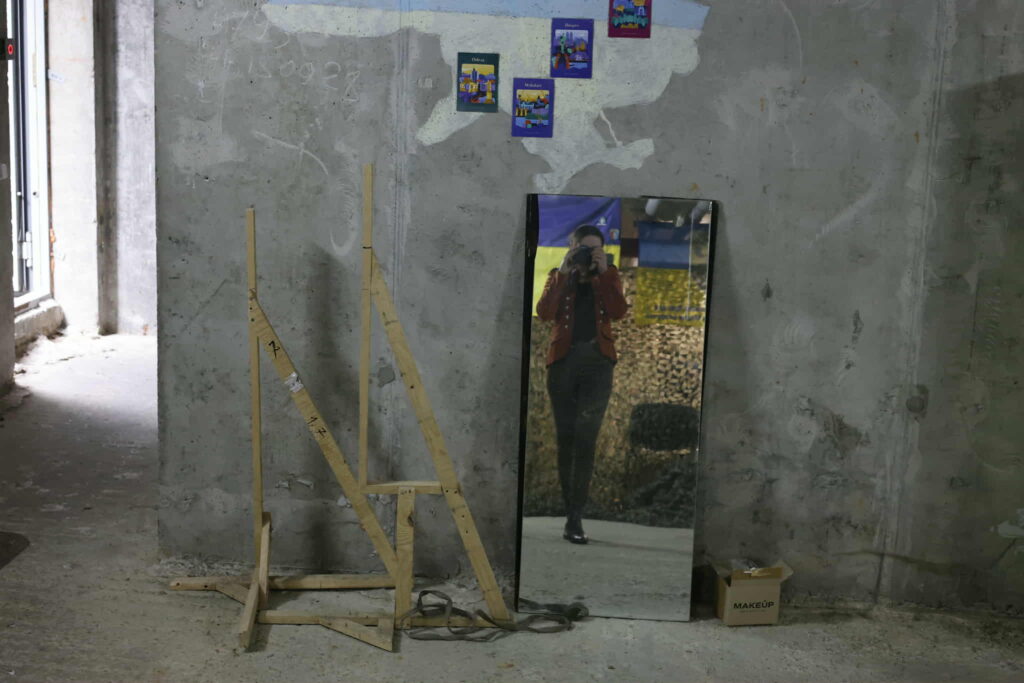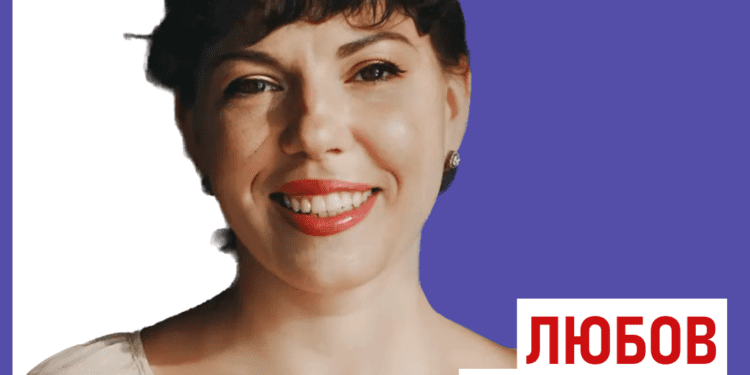An important mission of modern Ukrainian journalism has become the investigation and meticulous documentation of war crimes committed by the russian federation against the civilian population and the state of Ukraine, which is crucial for the future holding the aggressor accountable. Liubov Velychko is an investigative journalist, freelancer, and participant in the international journalistic program Global Press. After the start of the full-scale russian invasion, she decided to focus on issues that would help bring Ukraine’s victory closer. So, the main topics of her investigations were russian disinformation, the activities of russian special services, mechanisms for russia to circumvent international sanctions, and the destructive lobbying activities of russians abroad.
– Why did this issue become the most important for you?
– This decision turned out to be very successful, because despite working in wartime, I was able to avoid professional burnout. The range of topics I have chosen is exciting, and the inspiration to work on them is always with me. And when there is inspiration, there is also the strength to work. I wake up to the sounds of an air raid siren or explosions of evil – but I reassure myself: “It doesn’t matter, I will get even with you [the enemy] anyways! The text will soon be at the editor’s disposal!”
This was the point of emergence of investigations into the FSB’s secret services, the assistance of Turkish and Kazakhstani partners in supplying microelectronics for russian technology, and the russian lobby within the international organization IAEA, which is responsible for nuclear safety worldwide.
– Tell me what it was like to work on it?
– In 2024, I paid a lot of attention to the work of the russian oil and gas sector, in particular its largest companies: Gazprom, Rosneft, etc. As part of cross-border investigations into the influence of these companies on international climate policy, I investigated russian disinformation campaigns and connections with scientists – as a result of which decisions were made at the international level that were detrimental to the whole world.
To unravel the russian plans, I had to delve into hundreds of pages of documents, including reports from companies, scientific institutes, specialized associations, government decisions, and bills. I then clearly wrote down the chronology of events and identified patterns in messages and quotes spread on social networks and in the media.
Over the course of a year, using the examples of Gazprom and Rosneft, I developed my own methodology for investigating the impact of the oil and gas sector on international climate policies. I now share this methodology with colleagues from around the world, speaking at international conferences alongside investigative journalists. After all, the climate crisis is a global problem, and it is oil and gas companies that bear the lion’s share of responsibility for the rapid increase in greenhouse gases.
A question might be, “What does global warming have to do with the russian-Ukrainian war?” However, suppose my goal is to bring Ukraine’s victory closer. In that case, I also need to draw the attention of foreign colleagues to the pain points of russia, its main sources of financing, namely gas and oil. And therefore, the companies that extract them. This only enhances the effect of explosive strikes on russian oil refineries.
– What effect did you get from this difficult work, and does it meet expectations?
– By promoting the narrative of the toxicity of russian energy companies in the international arena, it provides new, useful ideas for journalists from all over the world to think about. It provides arguments in favor of introducing new sanctions against russian energy, which will be voiced publicly. And therefore, sooner or later, they will reach people who make important decisions.

***
Earlier, we reported that Liubov Velychko faced a number of challenges on her professional path. For example, she was harassed and threatened after publishing her own research on the content of some Telegram channels.
We also reported that journalist and NUJU member Liubov Velychko was not allowed to attend an open court hearing. She filed a police report for obstruction of journalistic activities and informed the NUJU leadership about the incident.
NUJU Information Service

 THE NATIONAL UNION OF
JOURNALISTS OF UKRAINE
THE NATIONAL UNION OF
JOURNALISTS OF UKRAINE
















Discussion about this post